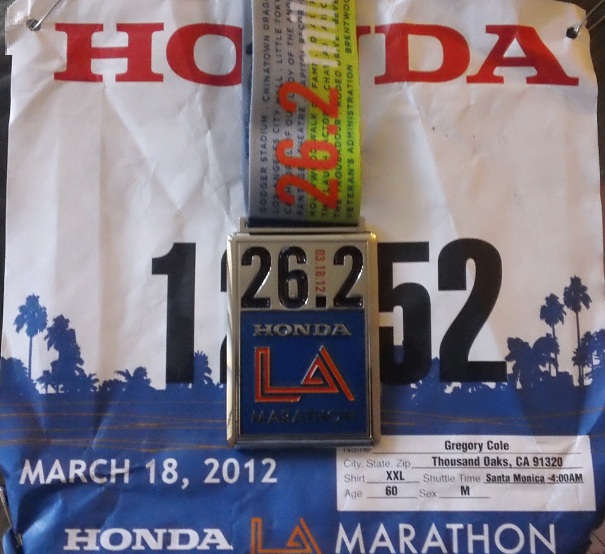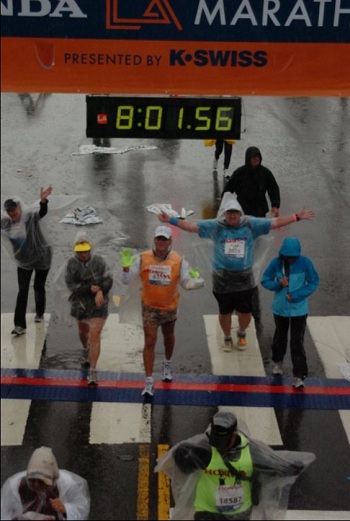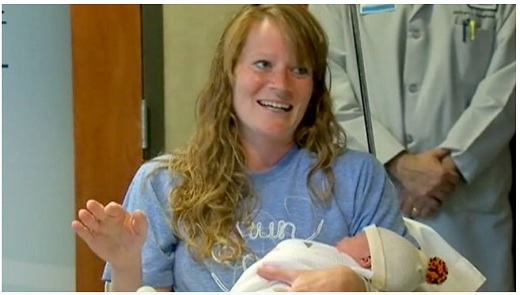Is Running a Marathon Bad for Your Heart?
Posted onMy 2012 Los Angeles Marathon Bib and Finisher’s Medal
The answer is NO, despite the fact there have been some deaths during marathon races.
What the researchers found was that, even as participation in marathon racing almost doubled during the past decade, to more than 473,000 finishers in 2009 from about 299,000 in 2000, the death rate remained unchanged, and vanishingly small. A total of 28 people died during or in the 24 hours immediately after a marathon, most of them men, and primarily from heart problems. (A few of the deaths were due to hyponatremia, or low blood sodium, in those who drank excessive amounts of fluid.) Those numbers translate into less than one death per 100,000 racers.
“Our data shows, quite strongly, that marathon running is safe for the vast majority of runners,” Dr. Pham says, “and I suspect that, for many of the runners,” the activity saved them from suffering a heart attack that might otherwise have been brought on by a sedentary, unhealthy lifestyle.
A similar epidemiological study, published in January in The New England Journal of Medicine, reached the same conclusion as Dr. Pham’s report, even as its authors looked more widely at data involving fatal and nonfatal cardiac arrests in half and full marathons over the past decade. The researchers found 59 cases of cardiac arrest during a half or full marathon, 51 of them in men, and 42 of them fatal. The average age of the affected racers was 42, and an overwhelming majority of them were approaching the finish line — within the last six miles for the marathon and the final three for the half — when they fell.
“The findings reinforce what we really already knew,” says Dr. Paul Thompson, the chief of cardiology at Hartford Hospital in Connecticut, an author of the study and a longtime marathon runner, “which is that you are at slightly higher risk of suffering a heart attack during a marathon” than if you were merely sitting or walking sedately during those same hours. “But over all, running decreases the risk of heart disease” and therefore the likelihood of your suffering cardiac arrest at all.
But, Dr. Thompson continues, running does not absolutely inoculate anyone against heart disease. “Genetics, viruses, bad habits from the past, bad diet or plain bad luck” can contribute to the development of plaques within the arteries or of heart damage like cardiomyopathy, an unnatural enlargement of the heart muscle, which running simply cannot prevent.
So, have regular physical exams by your physician and if you have a family history of heart problems see a cardiologist before you run a marathon.
The activity of training and running a marathon can be greatly rewarding and beneficial for your heart.




